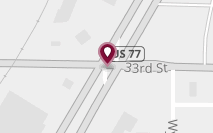A new dispute has arisen in regards to the Dakota Access Pipeline, the beleaguered oil pipeline project that was underway until the Army Corps of Engineers agreed to reconsider its environmental assessment. The Corps’ decision was arguably in response to protests by the Standing Rock Sioux and other Native Americans who oppose the pipeline being installed across Lake Oahe, which provides the tribe’s drinking water and is near sacred sites.
Whatever the ultimate outcome of the tribal sovereignty and environmental issues posed by the pipeline, however, it appears there will still be legal issues to resolve. Just this week, a group of landowners filed suit against Dakota Access, LLC, claiming that the company used fraud, misrepresentation and unfair tactics when it was negotiating easements across their land.
Dakota Access played one landowner against others to keep prices down, plaintiffs say
This particular lawsuit relies in part on a specific North Dakota statute that voids easements and grants both regular compensation and the potential for punitive damages against any party found to have used deceptive tactics to acquire easements on behalf of public utilities. That said, Oklahoma law also prohibits the use of fraud, misrepresentation, treats, intimidation and other deceptive business practices.
In this case, the landowners claim that in 2014, Dakota Access approached owners whose properties lay on the pipeline route in an effort to obtain easements. Essentially, when a landowner sells an easement, they are selling the other party only a part of their ownership rights — the right to use part of the owner’s land for the buyer’s benefit.
Dakota Access told the landowners that its maximum offer for the easement was $216 per rod (16.5 feet). The company claimed that those who granted the easements right away would get a signing bonus and would be paid regardless of whether the pipeline was actually built. The company also claimed that those who delayed would get a lower price, and furthermore that delays might get the pipeline moved, eliminating the need for easements altogether.
Only after the fact did the plaintiffs learn that some landowners had received as much as $2,000 per rod. Moreover, the pipeline’s route was already set and could not have been changed in response to a missing easement.
Landowners who granted easements right away did not receive the highest prices, as Dakota Access had promised. Instead, they tended to receive the lowest prices because they did not negotiate.
If you are ever approached for a real estate deal, an experienced attorney can help you avoid traps and pitfalls and prevent victimization by fraud.
